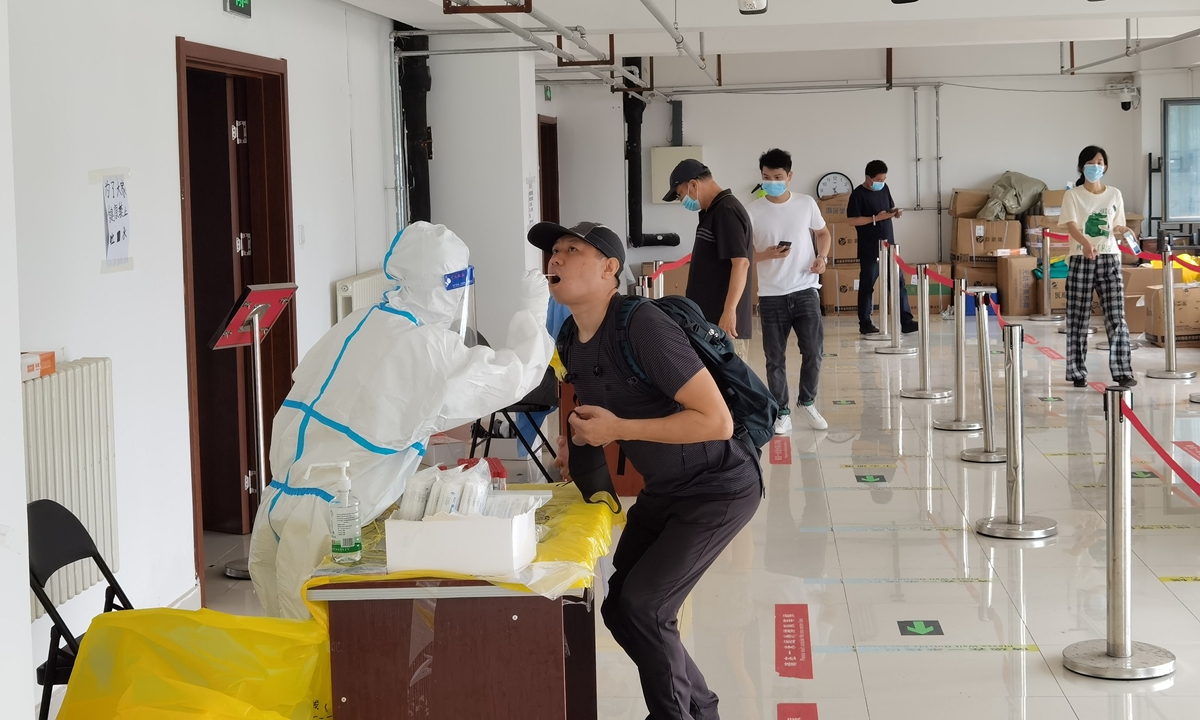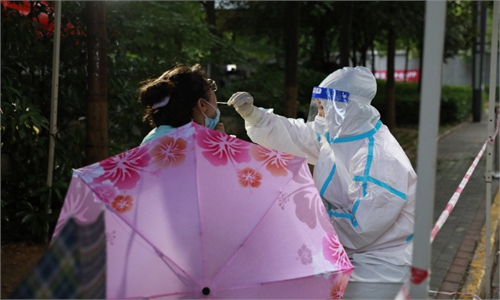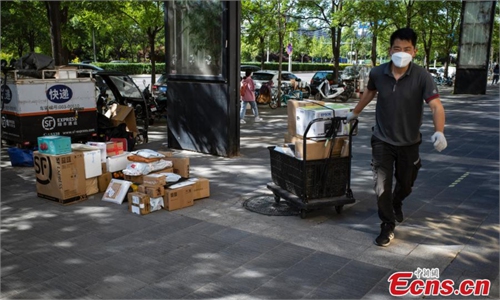
Residents from Shijingshan district in Beijing take nucleic acid tests on July 6, 2022. Photo: IC
The latest Beijing flare-up of 12 new cases detected as of Wednesday is believed to be a cluster infection caused by imported Omicron subvariant BA.5.2. The Beijing CDC said this is based on gene sequencing tests, while stressing the flareup is controllable.
Gene sequencing tests conducted on three samples registered on Tuesday showed that they were all infected with the Omicron BA.5.2 subvariant and they don't share the same transmission chain with previous Beijing cases or imported cases, Pang Xinghuo, deputy head of the Beijing CDC, said at a briefing on Wednesday. Pang noted that the outbreak was believed to be a local cluster infection caused by imported cases, based on the epidemiological investigation and gene sequencing results.
As of Wednesday afternoon, apart from one case reported on Tuesday who was found during community nucleic acid screening, all the other infections were close contacts of quarantined patients.
With a clear transmission chain and source, the city authorities believe that the epidemic is still generally under control.
The cluster infection started in Yanqing District in Beijing on July 4 and was caused by people returning to Beijing after serving the quarantine period upon entry.
Twelve infections have been reported as of 3 pm on Wednesday in four districts including Yanqing and Changping in Beijing.
The previous outbreak in Beijing is a reminder that in public venues, especially confined spaces where people gather, there is a high risk of viral transmission and an "amplifier" effect of the epidemic, said Li Ang, spokesperson for the Beijing health commission, during the press briefing on Wednesday.
To further implement normalized epidemic prevention and control, consolidate achievements and protect the health and safety of the public, especially the elderly and public service workers, Beijing plans to roll out a series of epidemic prevention and control measures.
The new regulations stipulate that from July 11, 2022, Beijing residents should be vaccinated (with exceptions for those not suited to vaccination) before entering public venues, including in-person training institutions, libraries, museums, cinemas, art galleries, culture centers, sports venues, gyms, performance and entertainment settings and internet cafes.
Besides, elderly people who enter colleges and venues offering entertainment should also be vaccinated if they are eligible.
Global Times


